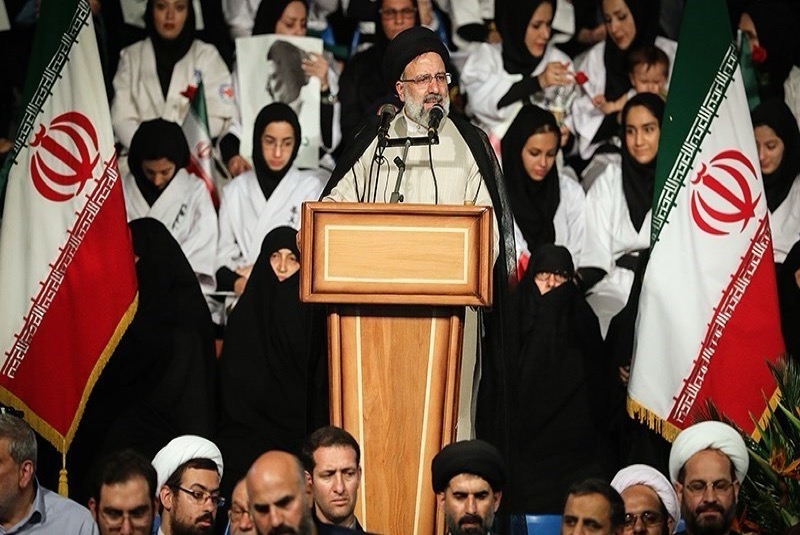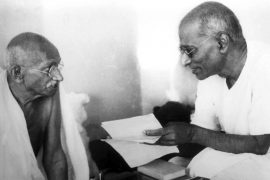Iran’s President Ebrahim Raisi, Foreign Minister Hossein Amir–Abdollahian, and seven others, including the two pilots, died when their helicopter crashed near Iran’s borders with Azerbaijan and Armenia on 19 May 2024. President Raisi was returning from Azerbaijan after inaugurating a dam jointly with its President Ilham Aliyev. The bilateral relations between the two neighbours had not been cordial, and the visit was meant to improve the relations.
The first and foremost question is: Was it only the bad weather that caused the accident, or did Israeli intelligence play a role in it, as the two countries had attacked each other last month?
Israel has not claimed any ‘responsibility.’ However, it may be noted that it is Israel’s practice not to claim ‘responsibility’ in such cases. However, an Israeli official seeking anonymity did tell the media that Israel had not been involved in any way.
Iran has officially maintained that the bad weather caused the fatal accident. Even if Iran had reason to suspect any Israeli involvement, Iran is unlikely to come out with it till it has decided how to react.
For the time being, let us assume that the bad weather alone caused the crash. However, that raises the question: Why was the pilot not informed of the bad weather in advance so that he could have diverted the flight?
Former Foreign Minister of Iran Mohammad Javid Zari blamed the United States for the crash. He has a point. The ICJ (International Court of Justice) ruled that the US must lift sanctions relating to humanitarian goods – including food, medicine, and aviation safety equipment and spare parts. Washington did not obey.
The crashed helicopter was made by Bell Textron Inc., based in Texas. Zari has a point. It might have been an old helicopter that was not kept in good flying condition by replacing parts as necessary.
What are the implications of Raisi’s demise? Before we answer this question, we need to say a word or two about the late President Raisi.
Ebrahim Raisi, born in 1960 in Mashad, chose to follow his father’s clerical profession and spent time in Qom, the headquarters of Ayatollah Ruhollah Khomeini, who led the 1979 Revolution that ended the rule of Shah Mohammad Reza Pahlavi.
Khomeini was the Supreme Leader from 1979 until his death in 1989. The current Supreme Leader, Seyyed Ali Hosseini Khamenei, succeeded. We note that the Supreme Leader is chosen for life. However, Khamenei had more or less indicated that he wanted to retire next year, and it was expected that Raisi would be elevated to that position.
Raisi took a PhD in Islamic Jurisprudence and joined the judicial service, where he rose rapidly. As Prosecutor General, he is infamous for sentencing to death tens of thousands of Iranians in 1988 without a fair trial. Raisi suppressed women’s protests against the draconian dress code, killing many. We all recall that Mehsa Amini died in custody. He violently suppressed public, non-violent protests. In short, in domestic policy, his legacy is flawed.
Coming to foreign policy, we must remind ourselves that the ultimate decider is the Supreme Leader. However, overall, on matters of foreign policy, Raisi’s record is good. With China mediating, Iran and Saudi Arabia arrived at a rapprochement. When I was in Iran (1976-79), there was no hostility between Riyadh and Teheran. The theory advanced by some IR scholars that the Shia-Sunni division alone accounts for the bad relations between the two countries is not entirely true. When I was in Teheran, the Shah was the regional leader who took instructions from Washington and acted to maintain Pax Americana. Riyadh accepted that system.
Raisi belonged to the school that held that Washington could never be trusted. Hence, he was against the Iran nuclear deal-technically known as JCPOA (Joint Common Plan of Action), which concluded in 2015 when Obama was President. Trump unjustly walked out of the deal in 2018 and reimposed sanctions on Iran. Raisi did not stop complying with the deal. He tried hard to persuade the Europeans to continue doing business with Iran. They agreed but developed cold feet as they did not want to stand up to Trump. It was only then that Iran started enriching uranium beyond the permitted level.
Will Iran reverse its policy of abstaining from making nuclear weapons? My assessment is that Iran might have already taken the decision to go nuclear, but it is unlikely that they will announce it right now. Israel has been steadfastly opposed to JCPOA, and recently (13 April 2024), Israel demonstrated its capability and willingness to attack Iran’s nuclear sites.
In this context, let us recall President Biden’s role. As a candidate, he had pledged to rejoin the JCPOA. However, as President, he followed Trump’s policy. Candidate Biden might not have been sincere when he gave the pledge. He might have said it to show that he is different from Trump and would abide by America’s international obligations.
There is another explanation. Anthony Blinken, as Secretary of State-designate, told the Senate before his appointment was approved by it that he would follow the Trump policy without naming him. Blinken made it clear that Iran had to stop its ‘destabilising’ policy in the region and accept restrictions on the development of missiles before Washington resumed its participation in the JCPOA.
There were talks moderated by the European Union. But Washington took a tough line by seeking to impose conditions on Iran, knowing well that it would reject them. The short point is that the pro-Israeli lobby is very strong in Congress, and Biden was unwilling to take that lobby on. The regrettable result is that Iran might go nuclear- not adding to Israel’s security- and Iran is already within the Russia-China axis, economically, diplomatically, and geopolitically- a legacy of Biden.
Iran’s support to Russia in the context of the war in Ukraine will continue. It does not matter who succeeds Raisi. President Putin has already spoken to Iran’s interim President Mokhber.
Many leaders, including Indian Prime Minister Modi, have condoled the death of Raisi. President Biden, we are told, has been ‘briefed.’ Till now, he has not reacted to the death of Raisi. This shows Biden’s mindset. He is prepared to violate elementary protocol. That is part of his ‘pernicious public diplomacy.’ It is shocking to listen to the reaction of the Republican Representative Michael Waltz from Florida, saying that it was ‘good riddance.’
The Prime Minister of the United Kingdom, Rishi Sunak, too, has been silent. We should not be surprised if he follows Biden in expressing condolences if Biden ever does it. London has meekly and faithfully followed Washington in foreign policy.
Some in the Western media have speculated and forecasted a civil war. Those expecting a civil war are likely to be disappointed.
Will Iran ever become a normal democracy? In 1953, under the leadership of Prime Minister Mohammad Mosaddeq, Iran moved towards democracy. He had nationalised the Anglo-Iranian Oil Company, whose profits mostly went to the United Kingdom. The young Mohammad Reza Pahlavi fled, and Iran was going to be a democracy. The United Kingdom suggested a military intervention. President Eisenhower refused but permitted the CIA to restore the Shah to power by arranging a coup d’etat.
America has done more to prevent Iran from moving towards a democratic destination by continuing with its utterly cruel sanctions.
I was in Iran when the U S Embassy was taken over by young militants entirely on their own without any instructions from Ayatollah Khomeini or the government of the day led by Revolutionary Iran’s first Prime Minister, Mehdi Bazargan. It happened on 4 November 1979.
A few days before that, National Security Adviser Zbigniew Brzezinski met Bazargan in Algeria. Brzezinski told Bazargan that there were no disputes between Teheran and Washington, that the arms for which the Shah had paid would be sent, and that it was important for the two countries to work together to stop and reverse Soviet expansionism. Bazargan agreed. However, he suddenly was told by his aides that the radio gave the news that Carter would give the Shah asylum. Bazargan and his aide insisted that the Shah should be sent back to Iran to face justice. Brzezinski argued that the Shah was an honoured guest of the President, and there was no question of him being sent back to Iran. The talks ended. Within forty eight hours, the embassy was taken over.
In retrospect, Carter lost re-election mainly on that count, and he regretted his decision to give asylum to the Shah, primarily because Henry Kissinger and Nelson Rockefeller had put pressure on him. The Embassy in Teheran had warned the State Department not to give asylum to the Shah.
The never-ending sanctions by the U S make it easier for the hardliners in Iran to brand those who want democracy as America’s agents and suppress them.
-30-
Copyright©Madras Courier, All Rights Reserved. You may share using our article tools. Please don't cut articles from madrascourier.com and redistribute by email, post to the web, mobile phone or social media.Please send in your feed back and comments to [email protected]











